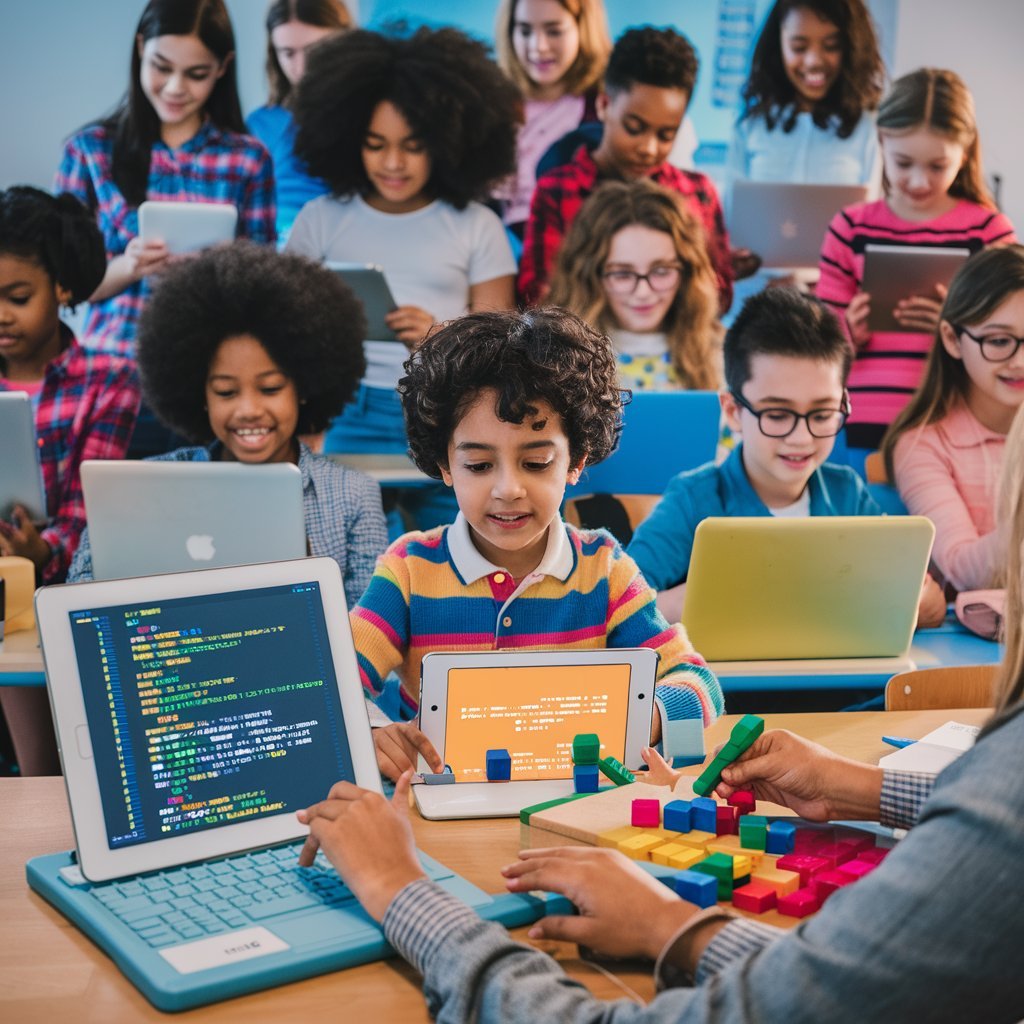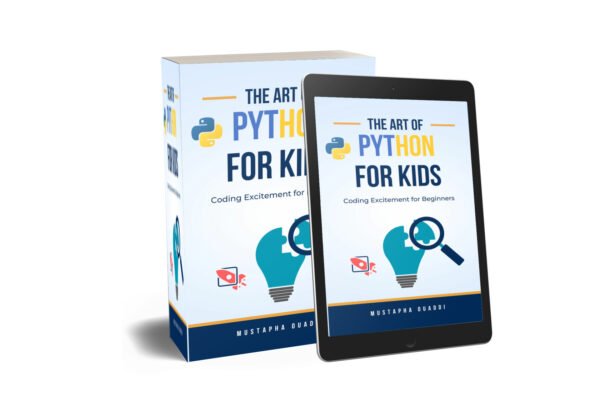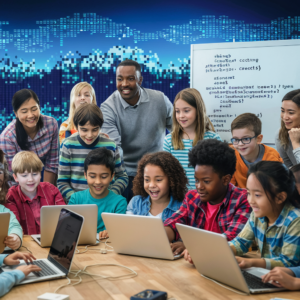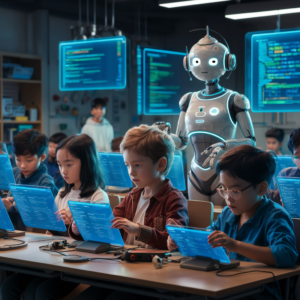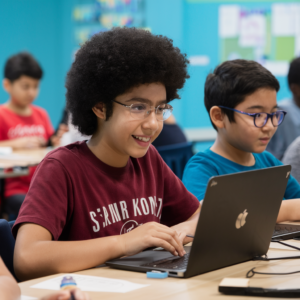Python For Kids
“Python Adventures: Coding Excitement for Beginners” is your ticket to the thrilling world of Python programming. Perfect for beginners, this comprehensive ebook takes you on an exciting journey through the fundamentals of Python, teaching you everything you need to know to start coding with confidence. You can make the future of your children by teaching…
Introduction:
In today’s increasingly digital world, technology plays a central role in nearly every aspect of our lives. As the demand for digital skills continues to grow, it’s essential to prepare the next generation for success in the digital age. One crucial skill that has gained prominence is programming or coding. Programming not only teaches computational thinking and problem-solving but also fosters creativity, collaboration, and critical thinking. In this article, we’ll explore the importance of programming in education and discuss how it can prepare kids for success in the digital age.
The Importance of Programming in Education:
- Fostering Computational Thinking: Programming teaches kids to think logically, break down complex problems into smaller, manageable tasks, and develop step-by-step solutions. These problem-solving skills are essential in various fields, including science, engineering, and mathematics.
- Promoting Creativity and Innovation: Programming empowers kids to create their own digital projects, whether it’s a website, a mobile app, or a game. By providing a creative outlet, programming encourages experimentation, innovation, and self-expression.
- Enhancing Critical Thinking Skills: Writing code requires attention to detail, precision, and the ability to anticipate and troubleshoot errors. Programming challenges kids to think critically, analyze problems, and debug their code, fostering resilience and perseverance in the face of challenges.
- Encouraging Collaboration and Communication: Programming often involves working on team projects, sharing ideas, and collaborating with others to solve problems. By engaging in collaborative coding activities, kids learn to communicate effectively, work as part of a team, and leverage each other’s strengths.
- Preparing for Future Careers: In today’s digital economy, proficiency in programming opens doors to a wide range of career opportunities in technology, software development, data science, cybersecurity, and beyond. By introducing kids to programming early on, we can equip them with the skills they need to thrive in future careers.
Examples of Programming in Education:
- Coding Clubs and Workshops: Many schools and organizations offer coding clubs, workshops, and extracurricular activities where kids can learn programming in a fun and interactive environment. These programs often use platforms like Scratch, Code.org, or Python for Kids to teach coding concepts through hands-on projects and games.
- Coding Curriculum Integration: Some schools integrate coding into their curriculum across various subjects, including math, science, and computer science. By incorporating coding activities and projects into existing lessons, educators can reinforce core concepts while teaching programming skills simultaneously.
- Maker Spaces and STEM Labs: Maker spaces and STEM (Science, Technology, Engineering, and Mathematics) labs provide hands-on learning experiences where kids can explore coding, robotics, electronics, and 3D printing. These interactive environments encourage experimentation, creativity, and innovation.
- Online Learning Platforms: There are numerous online learning platforms and resources available for kids to learn programming at their own pace. Websites like Khan Academy, Codecademy, and Coursera offer interactive coding tutorials, video lessons, and coding challenges for kids of all ages and skill levels.
Conclusion:
Programming plays a vital role in preparing kids for success in the digital age by fostering computational thinking, creativity, critical thinking, collaboration, and communication skills. By introducing programming in education through coding clubs, curriculum integration, maker spaces, and online learning platforms, we can empower kids to become confident, capable, and creative problem solvers in an increasingly digital world. As educators, parents, and mentors, it’s our responsibility to provide kids with the tools and opportunities they need to thrive in the digital age and shape the future of technology.
My E-Book Stores Links 👇
👉 Devoog : https://devoog.com/product-category/e-books/
👉 Gumroad : https://mustaphaouaddi.gumroad.com/
👉 Payhip : https://payhip.com/CodeKidsCorner
👉 KDP : https://amzn.to/3Ju8JH6


